Is white gold magnetic: read and find out
White gold, a lustrous and captivating alternative to traditional yellow gold, won the hearts of jewelry enthusiasts decades ago.
By Camilla Lewis | Updated May 7, 2024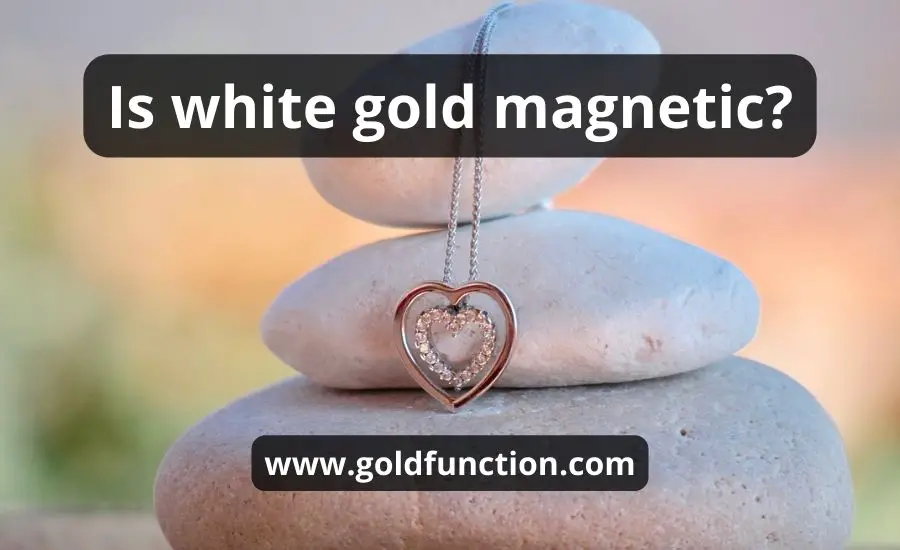
Its pristine appearance and timeless elegance make it a popular choice for engagement rings, necklaces, and other exquisite pieces. However, beneath its radiant exterior lies an intriguing question: Is white gold magnetic?
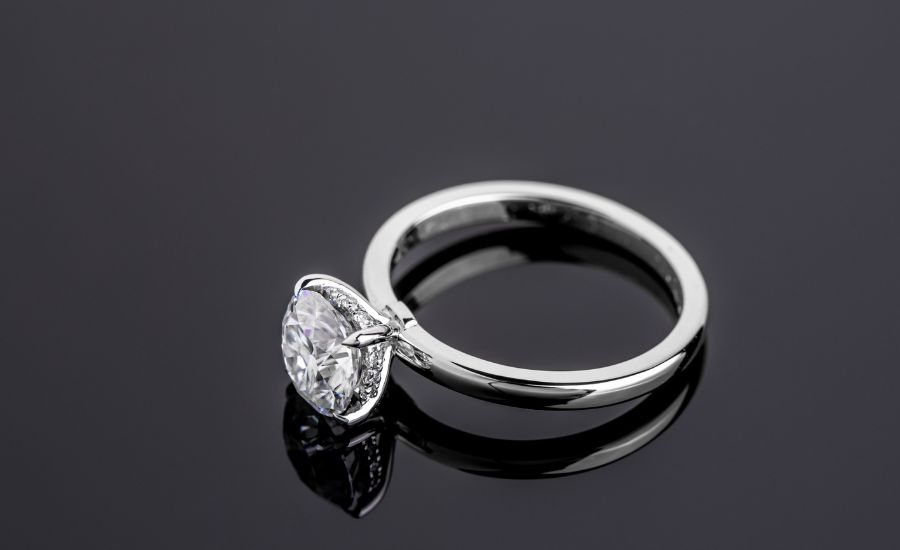
And, as it often happens, the answer to that question will not be unequivocal. The allure of this type of gold lies in its unique composition, a harmonious blend of pure gold intricately intertwined with metals like palladium, zinc, silver, or nickel.
While the enchanting sight of this precious metal is undeniable, its magnetic properties have puzzled many.
This article aims to satisfy those curious minds wondering about white gold’s magnetic qualities and unravel the mystery behind its magnetic nature, exploring how its composition influences its engagement with magnetic fields.
Essence and magnetism of white gold
White gold, as we’ve established, is a captivating alloy that pairs the purity of gold with the radiance of other metals.
However, it is the presence of the additional metals that sets it apart from pure gold and can influence its magnetic characteristics.
The nature of pure gold
Grasping the concept of the magnetism of this precious metal and answering the question: is white gold magnetic?, it’s logical to begin with pure gold. First and foremost, gold is not magnetic in its natural state. This characteristic is one of the reasons why this soft and malleable metal has been treasured throughout history. It doesn’t interact with common magnetic fields, making it distinctive in the world of metals.

The composition of white gold
The captivating allure of white gold originates from its composition. It is a carefully crafted blend of pure gold supplemented to a perfect degree with other white metals, such as palladium, zinc, silver, or nickel. The choice of these secondary metals contributes to the metal’s color, durability, and, indeed, its magnetic qualities.
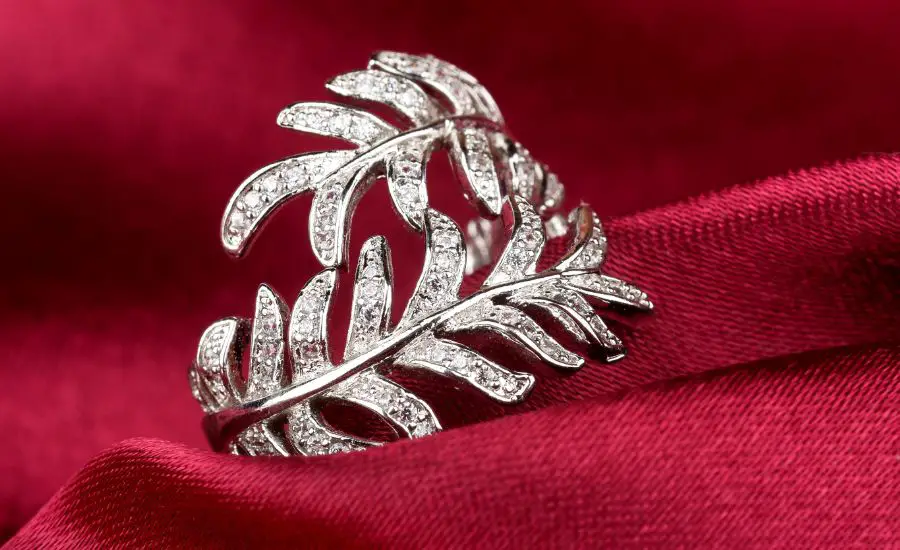
The role of alloying elements
Each secondary metal added to the alloy brings its unique properties. For instance, palladium is known for its non-magnetic nature, whereas nickel exhibits magnetic characteristics.
Silver, though, which has a wide application as an addition in white gold, is typically non-magnetic either. The alloying element characteristics and their proportions impact the overall magnetism of the white gold alloy.
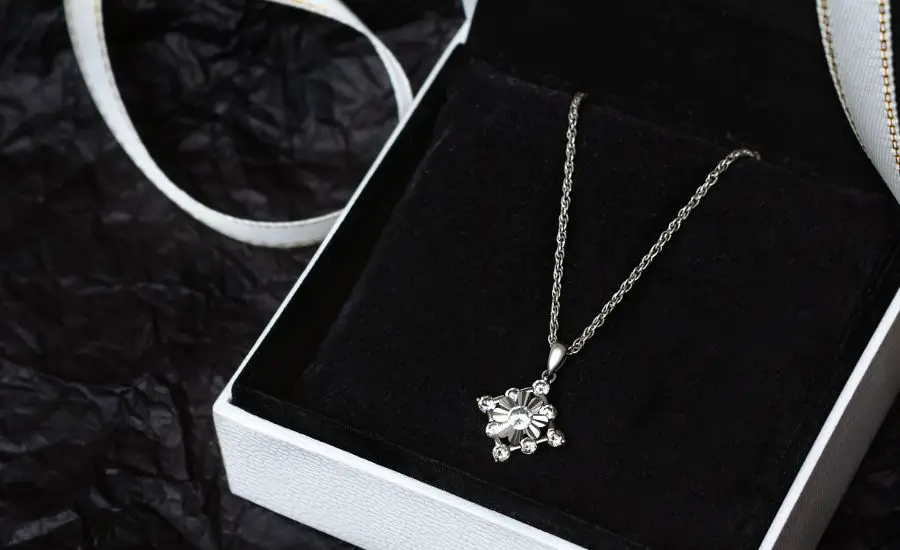
White gold alloys and their magnetism
The alloy composition is what defines the level of magnetism in white gold. In general, white gold alloys tend to lack any magnetic features or are only slightly magnetic.
These features are typically so faint that they might not be detectable in everyday scenarios.
The degree of magnetism in white gold depends on the ratio of other metals in the alloys. As an example, a higher proportion of nickel in the alloy with gold may exhibit slightly more magnetism than a palladium-rich alloy, as nickel belongs to a group of magnetic metals, whereas palladium doesn’t.
The magnetism is, in most cases, not potent enough to be attracted by a magnetic field or a metal detector.
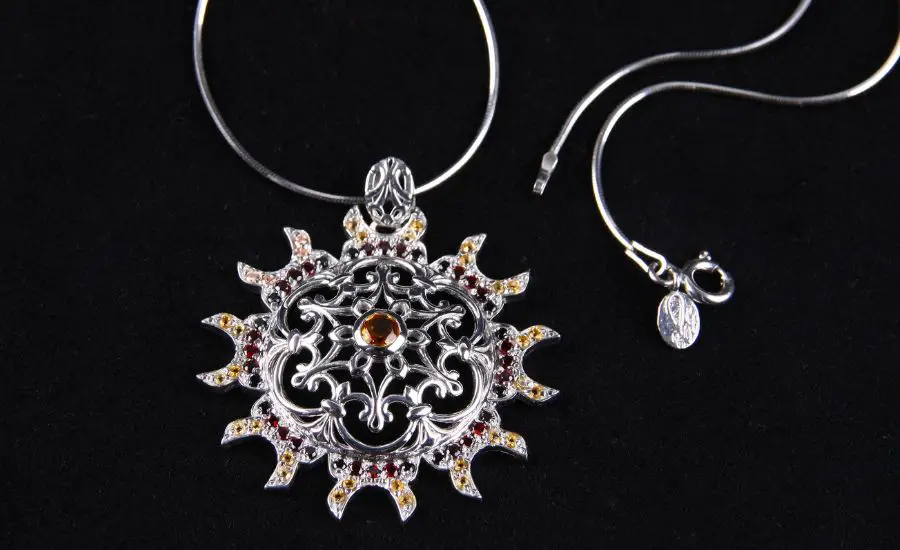
Implications for jewelry and beyond
When it comes to jewelry, it’s very unlikely to identify a magnetic field as it is typically negligible. White gold jewelry, whether it’s a delicate ring or an ornate necklace, is generally safe to wear without concerns about it being attracted to magnetic materials. This characteristic makes it an ideal choice for a wide range of jewelry pieces.
Unfortunately for treasure hunters, both pure yellow gold and its white variety cannot be discovered by PI-type metal detectors, making underground treasure hunting a more challenging endeavor.
Understanding the magnetism of alloys with white gold enriches our appreciation for the complexity of other precious metals.
While the magnetic material could be traced in the alloy, its magnetic pull is insignificant and rarely relevant in the world of jewelry.
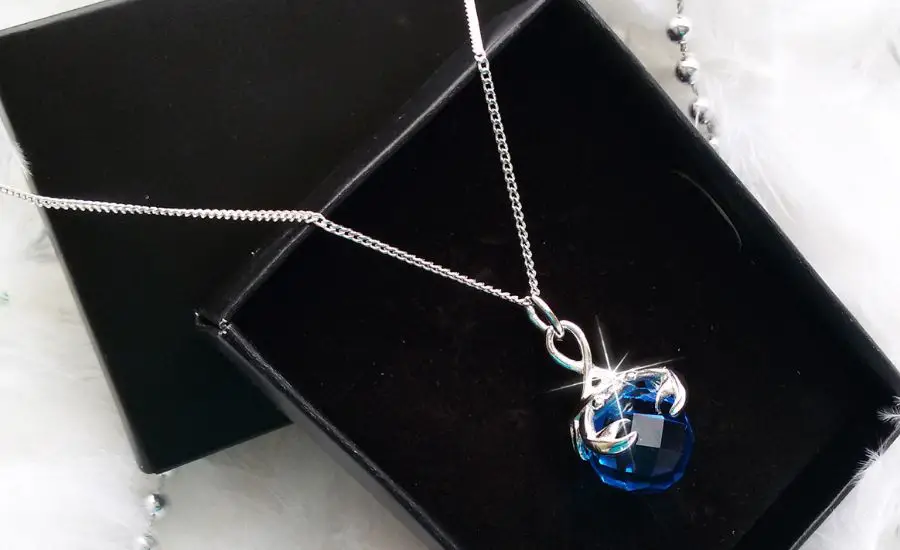
Final thoughts
In our exploration of white gold’s magnetic characteristics, we’ve unraveled the subtle science behind this alluring precious metal.
White gold, known for its radiant charm and versatility, is an alloy created with gold in pure form in a variety of blends with other metals such as palladium, silver, or nickel. Despite occasionally introducing faint magnetic qualities, the overall magnetism of white gold is a delicate matter.
This understanding of white gold’s magnetism enriches our knowledge of noble metals and also opens a new world of metals combined with other elements, resulting in amazing new creations.
Gold, with its non-magnetic nature, is often used as a reference point in metal detectors, distinguishing it from most common magnetic metals which include, among others, iron and nickel. Iron alloys are inherently magnetic, however, in jewel crafting, they are not used in composition with gold.
This property has significant implications in security scanning, prospecting for precious metals, and beyond.
So, is white gold magnetic? — For the most part, no. Its magnetic properties are insignificant nuances in the world of noble metals, and they do not compromise its beauty or elegance.
As you wear your white gold jewelry, remember that its magnetic pull is faint and rarely consequential, although this beauty may contain traces of magnetic characteristics.
Let the radiant charm of white gold continue to captivate your senses, knowing that its magnetism is a subtle facet of its overall brilliance.

FAQ
Does real white gold stick to a magnet?
Real white gold is generally not pulled to a magnet, or it exhibits extremely unsubstantial magnetism.
Can 14k white gold be magnetic?
14k white gold is typically not magnetic, but its magnetism can be very faint in specific alloys. For example, if the secondary metal in the alloy is nickel, which is an inherently magnetic element.
How can you tell if white gold is real?
To verify real white gold:
1. Check for a hallmark.
2. Use a magnet (real white gold is not strongly magnetic). Don’t apply this method alone, as it’s insufficient.
3. Seek a jeweler’s appraisal for confirmation. This is the method that we recommend the most.
Does 18 karat white gold stick to a magnet?
No, 18 karat white gold is not magnetic on the whole or exhibits negligible magnetism, and you will not feel any magnetic influence.
Written by Camilla Lewis

Camilla Lewis is our high gold & silver expert. Camilla is specialised in precious metals investing, testing, collecting and jewelry.
Trending posts under
As participant in an affiliate advertising program, we earn from qualifying purchases.